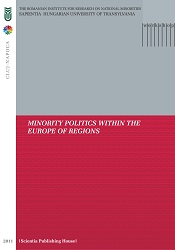

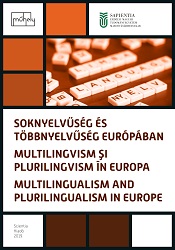
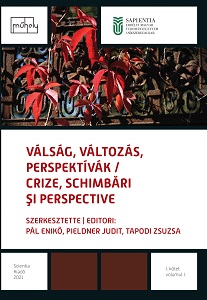
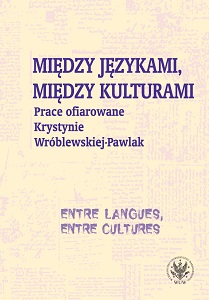
About heteromorphic messages and heterogeneous codes
O heteromorficznych komunikatach i heterogenicznych kodach
Keywords: natural language; artificial language; heterogenous language; heteromorphic message; mixed text; maps; musical notation; road signs; sign language
Languages (codes) can be homo- or heterogeneous, and their messages can be homo- or heteromorphic. The article shows (on the example of the Polish language) that such is the natural language (system) and its realizations (texts). Elements of other natural languages are present in the vocabulary and word-formation system. In messages in the acoustic subcode, suprasegmental acoustic elements with various functions (primarily emotive and conative) and visual elements (facial expressions, gestures, body language) overlap the proper phonic sequence. In written language, by shaping the signal (primarily in printing), apart from the semantic function, other functions (e.g. metainformative, metalingual) are implemented. Natural language texts are oft en mixed texts. For example, they contain elements of other natural and artificial languages, iconic characters and elements that are exponents of various functions, primarily metainformative and metalingual. Th e article also shows the heterogeneous character of artificial languages on the example of a map language, road signs, musical notation and a sign language.
More...
Prepositions like repetitions
Przyimki lubią powtórzenia
The article discusses the syntactic and semantic features of selected Polish and French expressions the construction of which is based on prepositions. The iteration of the nominal phrase accompanying the prepositional element is a distinctive formal property of these structures, e.g. oszust na oszuście, escroc sur escroc, ziarko do ziarka, grain à grain, krzesło przy krześle, chaise contre chaise. Th e main goals of the authors were: (a) to collect and to present relevant material of Polish and French, (b) to examine the similarities and differences between the respective constructions in both languages, (c) to establish the linguistic status of the analyzed expressions, as well as to discuss their meanings and syntax. Particular attention was paid to expressions denoting (1) the overrepresentation of elements, (2) the accumulation giving a new quality to the whole set of components and (3) the spatial proximity of objects.
More...
A press interview and a journalist’s ethos
L’entretien de presse et l’éthos du journaliste
Keywords: press interview; hypergenre; media communication; discours mis pour; ethos
The analysis concerns interviews, a type of discourse commonly found in the media, both recorded in the printed word and in the online press. We refer to current concepts of the genre of speech; the research of D. Maingueneau and P. Charaudeau provide the basis for the description of various implementations of the ‘interview’ as a hypergenre. The analysis of 13 interviews shows different ways of representing oral conversation and its textualization. The manner of presentation of the invited guest respects the principles of discourse of the press and allows building of a journalist’s ethos.
More...
Between languages, between worlds: life in a new language through the experiences of three female writers
Między językami, między światami – o życiu w nowym języku w świetle doświadczeń wybranych pisarek
Keywords: bilingual female writers; migration; bilingualism; language acquisition; linguistic adaptation; belonging
This paper presents the issue of bilingualism and life in a new culture through the experiences of three writers (Mary Antin, Eva Hoffman, Gerda Lerner), who left their home countries as teenagers and emigrated to the USA (Antin, Lerner) and Canada (Hoffman). Their reflections on starting life in a new language provide an opportunity to analyze language acquisition and linguistic adaptation in the immigrant setting.
More...
Molière’s "Tartuffe" in modern Polish translation
Molierowski "Świętoszek" w przekładach na współczesną polszczyznę
Keywords: Molière’s Tartuffe; Polish translation; forms of address; epithets as features of characters
The article deals with some strategical choices in new Polish translations of Molière’s "Tartuffe". The strategy we are interested in concerns some forms of address, especially terms of kinship, as well as epithets relative to drama characters. The target of three analyzed translations is the contemporary audience, so their style uses current expressions and idioms, nevertheless avoiding colloquialism and informal speech.
More...
Culturemes in literary translation
Kulturemy w przekładzie literackim
Keywords: literary translation; culturemes; translation strategies
This paper presents a few strategies which literary translators chose while translating Polish culturemes included in "Pamiętnik z powstania warszawskiego" by Miron Białoszewski into French ("Mémoire de l’insurrection de Varsovie") and English ("A Memoir of the Warsaw Uprising"). We analyze examples of translation of culturemes characteristic for the Polish language and history, some of them in the form of toponyms and anthroponyms. The translation of culturemes establishes a real challenge because of strong connotations in the original language and culture. For this reason "A Memoir of the Warsaw Uprising" is often regarded as “hermetically Polish” book.
More...
“We have created this island for ourselves...”
„Stworzyliśmy sobie taką wyspę…”
Keywords: salon; 19th century; Berlin; social life; entertainment
The aim of the paper is to reconstruct the forms of social activity in 19th century Berlin salons based on the analysis of selected memoirs, diaries and letters of guests and/or host(esse)s. From the definition of the term “salon” and briefly discussing its history in Europe and Friedrich Schleiermacher’s theory of salon society, the author proceeds to examine such forms of salon activities as reading literary works aloud, playing music, amateur theatre performances, tableaux vivants, and party games. The text demonstrates that these activities were both a way to facilitate interaction between guests and to show appreciation to amateur performers. In addition, they provided a platform and a way to find wealthy protectors to less known artists and debutants, while offering opportunities to give tour-de-force performances to established artists, writers, and poets. They helped bring people with shared interests together, creating a microcosm in its own right that transcended social divisions.
More...
The performances of “Faust” by Johann Wolfgang Goethe in Berlin and Warsaw with music by Prince Anthony Radziwiłł
O wystawieniach Fausta Johanna Wolfganga Goethego z muzyką polskiego kompozytora księcia Antoniego Radziwiłła w 1848 roku w salonie Magdaleny i Wacława Łuszczewskich w Warszawie
Keywords: Faust; Prince Anthony Radziwiłł; music for performances of Faust in Berlin and Warsaw
Although Polish-German cultural relationships have existed for a long time, only some aspects of them have become the subject of a more or less systematic research of musicologists and literary historians. In this text, I would like to bring up one of the little-known aspect of Polish-German relations in the field of literature and music in the nineteenth century – the performance of some lyrical pieces from the first part of the tragedy "Faust" by Johann Wolfgang Goethe in the Warsaw Literary Salon led by Magdalena and Wacław Łuszczewski. The lyric was set to music by the Polish composer Anthony Radziwiłł. The performance has been enjoyed by a wide audience in artistic circles, especially by those in musical circles, not only in Warsaw but in the whole Kingdom of Poland. The performances of "Faust" at the royal castle Monbijou and then at “Singakademie” (“Academy of Singing”) in Berlin were very widely covered as well.
More...
The contributions of the French to the description of the Polish language
Zasługi Francuzów dla opisu języka polskiego: autorzy najstarszych gramatyk polszczyzny
Keywords: Polish-French linguistic contacts; Piotr Statorius-Stojeński; Franciszek Mesgnien-Meniński; Polish language grammars
The article begins with an overview of the volume "Les contacts linguistiques franco-polonais", published in Lille by Zofia Cygal-Krupa (1995). The volume deserves attention for two reasons: it is the first, albeit little known in Poland, book devoted to linguistic contacts between Polish and a foreign language. In the preface to the volume, prof. Daniel Beauvois mentions the debt of gratitude which Poles have owed France since a Frenchman named Piotr Statorius-Stojeński published the first Polish language grammar in Cracow. The second part of the article is concerned with his life, his work in Poland and "Polonicae grammatices institutio" (1568). The third section of the article presents the life of another Frenchman, Franciszek Mesgnien-Meniński, as well as his work "Grammatica seu institutio Polonicae linguae" (1649), which is regarded as the best Polish language grammar written in the 17th century.
More...
Can we speak of multilingualism in Polish school?
Peut-on parler du multilinguisme à l’école polonaise?
Keywords: multilingualism; educational policy; foreign languages; minority languages; regional languages; Poland
The notion of multilingualism is relatively new in educational policy. Since it is multilingualism that decides on the coherence of the community, it is essential to value it first and foremost at school. The purpose of this article is to outline the main axes of the current educational policy and then present its implementation in the European and Polish education systems.
More...
Patterns of intralingual translation in "Matura" reading tasks
Patterns of intralingual translation in "Matura" reading tasks
Keywords: matura; reading; washback; endonormativity; intralingual translation
The paper examines the features of English used in the Polish "Matura" reading tasks, with a view to establishing patterns of correspondence between the original texts and the modified versions used for examination purposes. It is claimed that the differences between the two text categories are non-random and predictable, reminiscent of the effects of an intralingual translation. For reasons of space, only three areas of textual adaptations, referred to as “3Cs,” have been investigated here: culture, co-text (including paragraph organization, linking words, anaphora, etc.) and content (lexis, morpho-syntax, phraseology). An in-depth study of "English for Matura Purposes", a notion qualitatively different from English as a Foreign Language, is an important educational challenge, as high-stakes foreign language exams are argued in this paper to exhibit a degree of endonormativity (in the sense of providing norms of correctness to be observed by local users).
More...
Reflective writing as an initial training tool for foreign language teachers
L’écriture réflexive en tant qu’outil de formation initiale des enseignants de langues étrangères
Keywords: reflective writing; reflective practice; initial training; educational placement; foreign language teachers
In accordance with the conception of reflective practice, borrowed from the work of D. Schön (1983), the initial training of teachers focuses on the development of reflexivity, conceived as a professional judgment focused on its actions. Reflective writing is a tool oft en used for this purpose. This article offers a synthetic overview of the characteristics, functions and constraints linked to the practice of reflective writing in a university context for the initial training of foreign language teachers. To assess the effectiveness of professionalizing reflective writing, are being analyzed three types of reflective writing-based devices, namely a forum for discussion of practical internships, reflective structured grids and internship reports. In conclusion, some recommendations for teacher training are proposed.
More...
Olgierd Adrian Wojtasiewicz – founder of Translation Studies in Poland
Olgierd Adrian Wojtasiewicz – fondateur de la traductologie en Pologne
Keywords: translator; linguist; Translation Studies scholar; translators’ training
The aim of the paper is to draw a sociological portrait of Olgierd Adrian Wojtasiewicz, Polish linguist, translator, scholar and translators’ trainer who published a book entitled "Wstęp do teorii tłumaczenia" ["Introduction to the Theory of Translation"] in 1957. In this paper I shall be investigating the main tenets of Wojtasiewicz’s contribution to translation studies, the main reason of its total ignorance outside Poland. I shall also look at his major achievements as a translator and founder of the first academic institution in Poland of training of translators and interpreters.
More...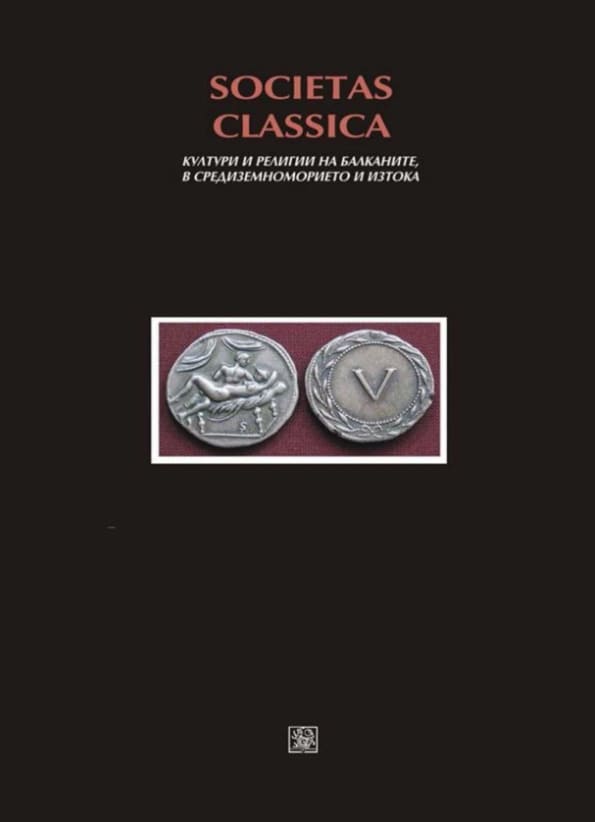
The Greek-Language Poetic Work of Three Bulgarians: Ivan Seliminski, P. Protis, and Gr. Parlichef
Гръкоезичното поетично творчество на трима възрожденски българи – Ив. Селимински, П. Протич, Г. Пърличев
Keywords: poetry in Greek; University of Athens; Bulgarian Hellenists; Bulgarian Renaissance scholars
In the middle of the 19th century, a large number of Bulgarian Renaissance scholars, which included Ivan Seliminsky, Petar Protich and Gregor Parlichev, created poetry in Greek. The works which are presented by the three Hellenists in the present study are a valuable a source for some of the characteristic features of the Balkans, as well as the language characteristics and the particular style from each of them. P. Protich’s satire focuses on the dangers hidden in Hellenistic phenomena of the Balkan intelligentsia. The poems of Greg. Parlichev are distinguished for their rich poetic language and describe the struggle for liberation from the centuries long yoke of slavery, while Iv. Seliminsky presents events in Wallachia since the middle of the 19th century. In the life and spiritual attitude of these three Hellenists there is something very common – they attend Greek schools, they study at the University of Athens, live and work for the political and spiritual regeneration of the Bulgarian people.
More...
Intransitive Verbs with Acquisition of Transitivity in the Greek Language
Непреходни глаголи с придобита транзитивност в новогръцкия език
Keywords: intransitive verbs; transitivity; intransitivity
In Modern Greek language, the verbs function extremely flexibly in terms of transitivity / intransitivity. In conversational speech, Greeks often violate syntactic norms, and many intransitive verbs change their character and become transitive.
More...
Translation from Greek Language of Historical Cultural Speciifics
Преводът на исторически реалии от гръцки език
Keywords: historical culture specifics; Greek language; translator approach; background knowledge
The article covers issues in translating historical culture specifics from the Greek language. Translatability of such a specific lexical unit is admissible in principle, as long as the national and historical cultural colour is preserved in accordance with the artistic experience of the target environment and with the particular social and cultural context, provided that there is no excessive transcribing or providing of numerous explanations of the culture specifics in the fiction translation. The article places emphasis on the fact that solution should be sought on a case-bycase basis, in accordance with the choices, made by the translator, their skills, attitude and the linguistic tradition.
More...
About the Word “Havra” in Bulgarian, Greek and Russian Language
За думата „хавра“ в българския, гръцкия и руския език
Keywords: meaning; havra; language; Bulgarian; Greek; Russian
In this paper is presented the word “havra” from semantic point of view – its meanings, matchability, use, as well as the origin of the word “havra“ in Bulgarian, Greek and Russian with fair relevance in the examined three languages.
More...The search is temporarily unavailable.
We apologize in advance for the inconvenience and thank you for your kind understanding.
